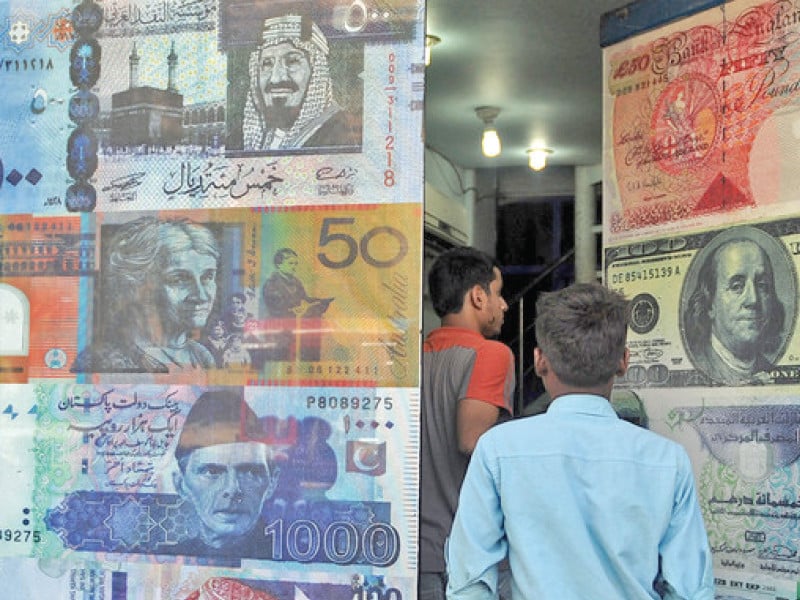By Salman Siddiqui
Published in The Express Tribune on April 09, 2024
KARACHI:
The inflows of workers’ remittances sent home by overseas Pakistanis hit a two-year high at $2.95 billion in March, taking the cumulative inflows to $21 billion in the first nine months of the current fiscal year 2024.
The remittances have risen to this level as non-resident Pakistanis sent higher funds to their family members in the homeland to meet increased expenditures during the holy month of Ramazan and the Eid festival falling this week.
The State Bank of Pakistan (SBP) reported that remittances grew by 31.1% in the month compared to the previous month of February and by 16.4% compared to March 2023. Speaking to The Express Tribune, Tahir Abbas, Head of Research at Arif Habib Limited, stated that the inflows at $3 billion in March are in line with expectations.
He noted that a significant number of overseas Pakistanis send the highest funds of the year during the holy month of Ramazan to support family members in the country. Additionally, a portion of expatriates send zakat and fitra (charity funds) for welfare work in Pakistan, contributing notably to the increase in inflows.
Abbas mentioned that the return of stability in the rupee-dollar parity over the past several months also encouraged more expatriates to send funds through official channels, further boosting remittances.
Workers’ remittances recorded an inflow of $21 billion during the first nine months of FY24, showing an increase of almost 1% compared to the $20.8 billion recorded during the same period in FY23.
Abbas recalled that many Pakistanis had resorted to unauthorised channels in the past due to the establishment of illegal currency markets offering better rupee-dollar exchange rates to expatriates. However, crackdowns against illegal operators crushed the black markets, leading non-resident Pakistanis to return to legal channels.
Workers’ remittances inflows during March 2024 were mainly sourced from Saudi Arabia at $703.1 million, the United Arab Emirates at $548.5 million, the United Kingdom with Pakistanis sending $461.5 million, and the United States of America with non-resident Pakistanis sending $372.5 million in the month.
SBP Governor Jameel Ahmad projected in late January 2024 that Pakistan would receive a total of $28 billion in workers’ remittances in FY24, around $1 billion higher than the $27 billion received in FY23. Abbas, however, stated that the total remittances may reach near $30 billion this year, suggesting that SBP’s projection for $28 billion is cautious. He mentioned that the permanent ceasefire in the Middle East soon is likely to improve the global economy and increase the earnings of Pakistani expatriates, leading to sustained healthy inflows. He also noted that while remittances may experience a usual dip in April, they are expected to increase again in May and June ahead of Eidul Azha.
IFC approves $400 million financing
The International Finance Corporation (IFC), the investment arm of the World Bank Group, has approved debt financing worth $400 million for Pakistan Telecommunication Company Limited (PTCL), enabling it to acquire Telenor Pakistan.
In a notification to the Pakistan Stock Exchange (PSX), PTCL Company Secretary Zahida Awan stated, “The Board of Directors of IFC has approved debt financing up to $400 million to PTCL for the acquisition of TPL (Telenor Pakistan Limited).” However, it remains unknown whether Telenor would reinvest the payment in Pakistan or remit it to its headquarters abroad.
“Finalisation of workstreams to sign financing agreements with IFC is underway and expected to be completed on or before July 31, 2024. The details of the debt financing shall be disclosed upon the finalisation of financing agreements,” the PTCL notification added. The notification helped boost PTCL’s share price by 5.13% or Rs0.83, closing at Rs17.02 per share with 33.76 million shares at PSX on Monday.
Earlier in mid-December, the PTCL board of directors approved entering into a share purchase agreement (SBA) with the shareholders of Telenor Pakistan for the acquisition of 100% shares of TPL, based on an “enterprise value of Rs108 billion (close to $400 million) on a cash-free, debt basis.”
PTCL stated in a previous notice that Telenor Pakistan is a strong mobile operator serving 45 million subscribers with reported revenue of Rs112 billion and an EBITDA margin of 43% based on the last 12-month September 2023 financial reporting.
The transaction provides an opportunity for in-market consolidation in the telecom market, which will predominantly lead to an improved long-term outlook for the telecom sector. The transaction will also improve the capabilities of the combined entities and result in improved coverage and quality of service to customers and enable wider access to communication solutions for businesses, while supporting the economic growth of Pakistan.
“It will further strengthen the position of PTCL Group as a leading operator in mobile, fixed, and microfinancing serving more than 70 million customers, upon completion of the transaction.”
PTCL expects that the combined infrastructure assets of both entities shall unlock value in synergies. PTCL efforts to build a prosperous and digitally connected nation and position PTCL as the national champion to support Pakistan’s digital transformation.






